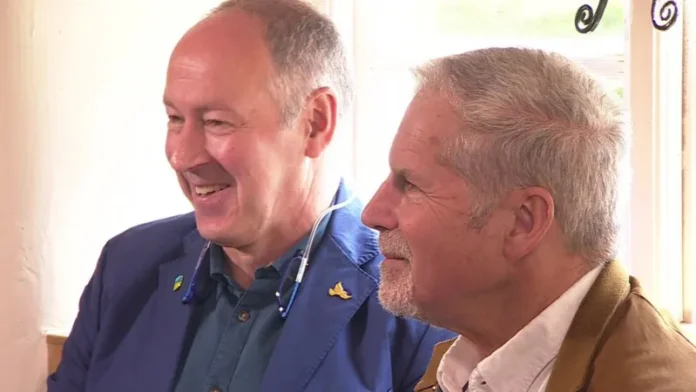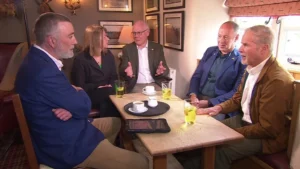 Some say politics shouldn’t be discussed at the pub, but with local elections coming up on Thursday, I headed to The Langton Arms in Tarrant Monkton to hear from some of Dorset Council’s key players.
Some say politics shouldn’t be discussed at the pub, but with local elections coming up on Thursday, I headed to The Langton Arms in Tarrant Monkton to hear from some of Dorset Council’s key players.
At this Thursday’s local elections, all 82 seats on Dorset Council are up for grabs.
This pivotal event carries significant implications for the future direction of the council and the communities it serves. With such a large number of seats at stake, the outcome of these elections could potentially reshape the political landscape of Dorset.
The Unitary Authority was only created in 2019 – previously, the County Council it replaced had been Conservative controlled for all but eight of its 136 year history.
In 1993, the Liberal Democrats assumed control, marking the beginning of an eight-year period of governance. During this time, the party implemented a range of policies focusing on education reform, environmental protection, and social welfare.
Their tenure was characterized by a commitment to liberal values, inclusivity, and progressive governance. Despite facing challenges and criticisms, the Liberal Democrats demonstrated resilience and adaptability in their leadership approach.
With dismal polling for Conservatives nationally, the Lib Dems believe that they are poised to take control of the council.
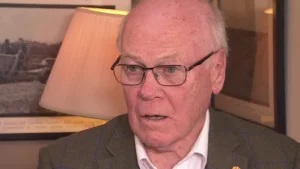
Along with Rishi Sunak’s low personal approval rating, poor national polling is making it hard for local Tory candidates and activists to want to be aligned to the national Conservative brand.
79 of the 82 Tory candidates standing have chosen to call themselves “Local Conservatives”.
Council leader Spencer Flower recently told Conservative MPs in Dorset to stay away when they’d asked how they could help during the local election campaign.
He said the branding on the leaflets is nothing new: “It’s a local election about local services and I am proud of our record, not making any cuts to frontline services and not using up our reserves to balance the budget”.
The Lib Dems control a number of councils in the surrounding area – including Bournemouth Christchurch and Poole Council, where the administration has had to identify £44m of savings in setting their budget for this year.
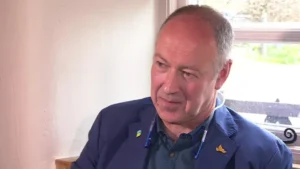
If given the opportunity to lead the council, Nick Ireland emphasized a focus on community engagement and transparency. He plans to implement regular town hall meetings to involve residents in decision-making processes and ensure their voices are heard. Ireland also highlighted the importance of financial accountability, vowing to prioritize responsible budget management and invest in essential public services.
Additionally, he expressed a commitment to promoting environmental sustainability by supporting green initiatives and enhancing recycling programs. Ireland’s vision for leadership centers on fostering a sense of unity and collaboration within the community, working towards a shared goal of progress and inclusivity.
“We’re not planning to make any cuts at all. We’re planning to build housing, because we can. There are lots of ways we can build for our residents. They’ve got to be available for “social rent”, not affordable rent as defined by the Government.
No one can afford that. We’ve had five years where Dorset Council hasn’t built a single house. That’s five years wasted.”
If the Conservatives lose just a handful of the forty three seats they are defending, then smaller parties like the Greens and the Independents group have already said that they’d join forces to support a Lib Dem administration.
As the leader of the Green group with five seats, Claire Sutton holds a position of influence within the legislative body.
With her leadership, she plays a crucial role in guiding the group’s agenda, coordinating actions, and representing the interests of their constituents. Having five seats gives the Green group a significant presence within the decision-making processes, allowing them to leverage their collective power to advance their environmental and social justice initiatives.
In this capacity, Claire Sutton’s leadership skills, strategic thinking, and ability to build consensus are essential to effectively championing the group’s priorities and driving positive change within the larger political landscape.
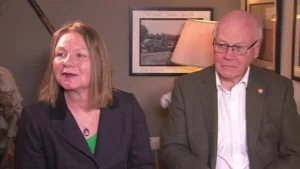
“My group, the Greens has already worked collaboratively with colleagues. We have to be using the skills across the chamber. And have the best people in the positions to which they’re best suited,” she said.
Cllr Les Fry leads the four members of the group, Independents For Dorset.
He said: “Leave the politics behind. Have the best people in the best roles. Work together, make Dorset a better place for everybody.”
Paul Kimber, who represents Portland, is the only Labour and Co-operative Councillor.
He said: “The biggest single issue is getting money into Dorset because our RSG (Rate Support Grant) from the Government is so low. How can it be that we get £700k (seven hundred thousand) a year when some inner London boroughs get millions?”
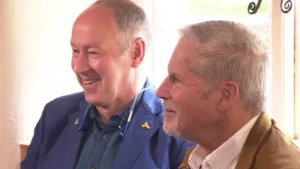
My meeting with the council group leaders was convivial, with much consensus between them on a number of issues – the need for housing, the cost of living crisis, the spiralling cost of social care – and the Bibby Stockholm at Portland Port, which none of my guests wished to see it stay a second longer once the that the original 18 month contract to host the migrant barge expires later this year.
Electorally, Dorset has pretty much always been a “sea of blue”. But if the political tide really is turning here, the result of what could be a very tight election will certainly be one to watch.

